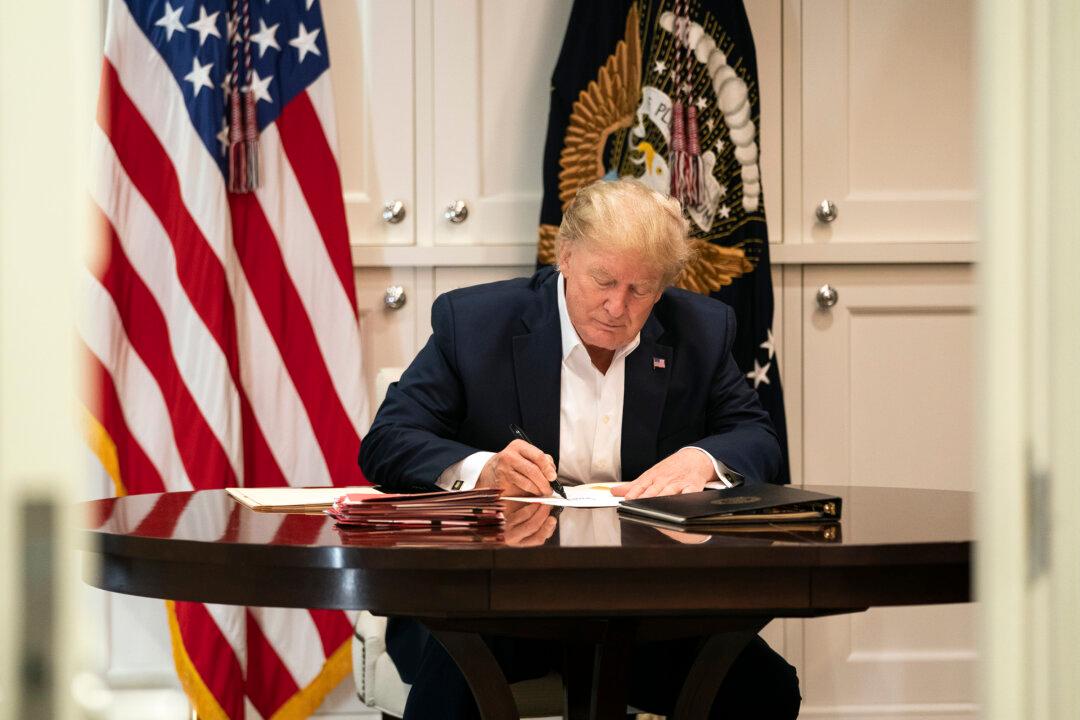U.S. stocks jumped higher as markets opened Monday on signs that President Donald Trump’s health was improving and on stimulus hopes, bringing some relief to markets after uncertainty over his COVID-19 infection sparked a shift away from risk assets last week as investors sought refuge in save havens like bonds and gold.
Trump announced on Friday he and First Lady Melania Trump tested positive for COVID-19, the illness caused by the CCP (Chinese Communist Party) virus. The president was flown to a hospital for treatment later that day, but his doctors said he had responded well to treatment and could return to the White House as soon as Monday.





